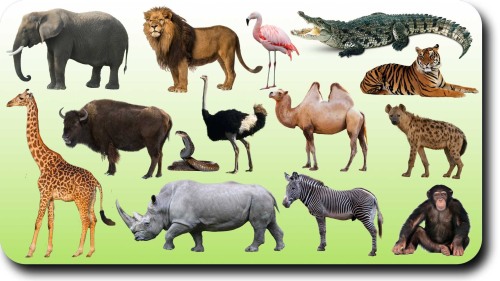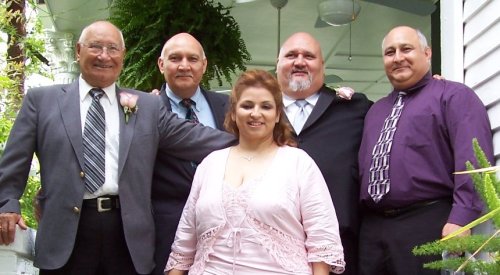
According to their pasture, so were they filled; they were filled, and their heart was exalted; therefore have they forgotten me. (Hosea 13:6)
Hosea, whose name means “deliverer,” is an interesting character. God instructed Hosea to marry a prostitute (Hosea 1:2). He married Gomer (v. 3) who bore three children to him. Soon after that, Gomer left Hosea and returned to her whoring ways. After that God instructed Hosea to go after her and buy her back (Hosea 3:1-3).
The image presented depicts God, the Deliverer, who brought Abraham out of idolatry (Joshua 24:2), i.e. “whoredom,” gave him the promise of progeny, and the promise of the Land of Canaan. Abraham’s grandson, Jacob (renamed Israel), had 12 sons who became the 12 tribes of Israel. These ended up in Egypt for over 400 years where they picked up the idolatrous ways of the Egyptians. God delivered them from Egyptian captivity and returned them to the Promised Land.
Within a generation, as recorded in the book of Judges, Israel fell back into idolatry – they went whoring after the gods of the Canaanites. Without rehearsing every detail of their history, Israel was continually unfaithful to God. In their history, God blessed them as a nation, but they soon forgot the source of the blessings.
Our passage above begins with God addressing Ephraim. Ephraim, probably the strongest of the northern ten tribes of Israel (the northern kingdom), symbolizes all of Israel. “[T]hey sin more and more, and have made them molten images of their silver, and idols according to their own understanding, all of it the work of the craftsmen: they say of them, Let the men that sacrifice kiss the calves” (Hosea 13: 2). Like Gomer, after God rescued them out of idolatry, they fell right back into it.
While Gomer was with Hosea, he cared for her and provided for her. She did not need to prostitute herself to meet her needs, but the source of her (unmerited) privileged status never entered her mind, and she fell back into her old habits. Through Hosea’s experience with Gomer, God strikes the parallel with Israel: “I did know thee [intimately] in the wilderness, in the land of great drought” (v. 5), i.e. in the land of false gods. Then God brought them into a good “land flowing with milk and honey” (Exodus 3:8). In this new land, they lived well and enjoyed God’s blessings. “According to their pasture, so were they filled; they were filled, and their heart was exalted; therefore have they forgotten me” (Hosea 13:6, emphasis mine). In that blessed condition, they forgot God.
The very thing about which God warned them, they did. “When thou hast eaten and art full, then thou shalt bless the LORD thy God for the good land which he hath given thee. Beware that thou forget not the LORD thy God, in not keeping his commandments, and his judgments, and his statutes, which I command thee this day: Lest when thou hast eaten and art full, and hast built goodly houses, and dwelt therein; And when thy herds and thy flocks multiply, and thy silver and thy gold is multiplied, and all that thou hast is multiplied; Then thine heart be lifted up, and thou forget the LORD thy God, which brought thee forth out of the land of Egypt, from the house of bondage” (Deuteronomy 8:10-14, emphasis mine).
We risk falling into the same trap as Israel when God blesses us with good things: home, family, good health, steady income, etc. God warned Israel before they entered the Promised Land not to get too full of themselves “And thou say in thine heart, My power and the might of mine hand hath gotten me this wealth” (Deuteronomy 8:17, emphasis mine). We tend to do the same when life favors us. We assume the credit when things go well, but when trouble comes we blame God. That second assessment may not be too far from the mark. “And it shall be, if thou do at all forget the LORD thy God, and walk after other gods, and serve them, and worship them, I testify against you this day that ye shall surely perish” (Deuteronomy 8:19, emphasis mine). Israel failed to heed God’s warning: “Therefore I will be unto them as a lion: as a leopard by the way will I observe them: I will meet them as a bear that is bereaved of her whelps, and will rend the caul of their heart, and there will I devour them like a lion: the wild beast shall tear them” (Hosea 13:7-8). Not long after, the Assyrian Empire devoured Israel and expatriated the population to other parts of Assyria. In a sense, God ripped Israel to pieces. We should take notice!
The psalmist says, “Bless the LORD, O my soul, and forget not all his benefits” (Psalm 103:2). One of President Obama’s most infamous sayings is, “You didn’t build that.” In some respects, he is correct (but not in the context of his ideology). When we become too confident in our own abilities, God says, “Yet I am the LORD thy God from the land of Egypt, and thou shalt know no god but me: for there is no saviour beside me” (Hosea 13:4, emphasis mine). David reminds us that “Both riches and honour come of thee, and thou reignest over all; and in thine hand is power and might; and in thine hand it is to make great, and to give strength unto all” (1 Chronicles 29:12, emphasis mine). The Book of Psalms repeats the refrain reminding us to “give thanks unto the Lord.” All that we have comes from God. When we forget, our blessings become a curse – perhaps not in a perceivable sense, but in the real sense that we become self-focused. We take our blessings for granted, and we drift away from the source of our blessings. That in itself is a curse. Paul reminds us: “In every thing give thanks: for this is the will of God in Christ Jesus concerning you” (1 Thessalonians 5:18). “And we know that all things work together for good to them that love God, to them who are the called according to his purpose” (Romans 8:28). With the right mindset, we recognize that our blessings come in all forms so that we can rejoice in “all things,” and our blessings remain blessings and not curses.




